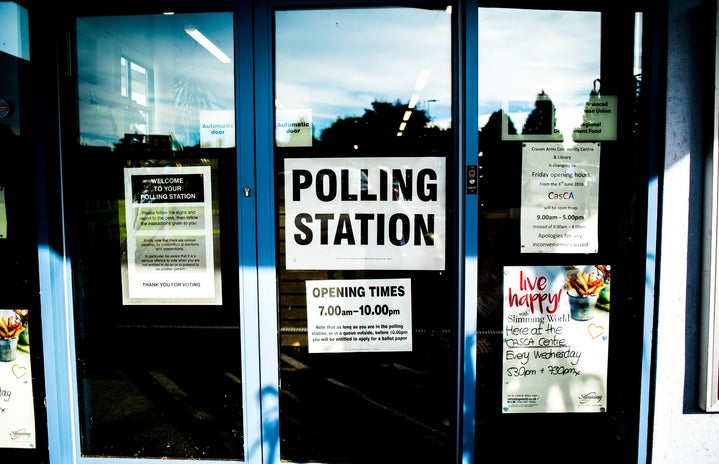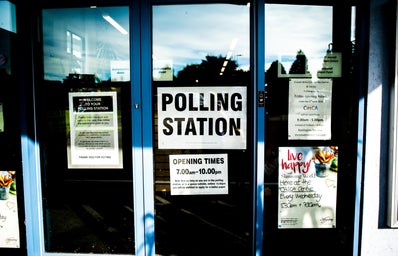While attending another club meeting on campus, I had the chance to meet Sarah Kruger who is running for the State Senate seat for District 28, which includes the City of Winona. Winona State University is directly affected by the decisions made by the person who holds this Senate seat, so I realized that her campaign very much pertains to Winona State students. I sat down with her a few weeks after our first encounter, and this is what I learned about her.
Hannah Petersen (HP): Why have you chosen to run for Senate?
Sarah Kruger (SK): I’m running for Senate District 28 because our communities deserve strong representation, innovative leadership and inclusive governance. This election is not about running against an opponent; it’s about running for the people in our communities. Why? Because you matter. Whether you’re a college student facing unreasonable student loan debt, a recent graduate struggling to make ends meet on minimum wage, or a young person launching a startup trying to afford health insurance—you and the challenges you face matter.
I understand the limited job opportunities many young people encounter, often requiring them to leave our small towns to search for employment elsewhere. Our future in Southeast Minnesota depends on revitalizing our rural economies. Diverse employment opportunities must exist in order for young people to stay in the towns they grew up in and to attract newcomers to move to our part of the state. Our legislative leadership needs to prioritize supporting healthy rural economies, as they are not only beneficial to Greater Minnesota but play a crucial role in Minnesota’s prosperity.
HP: What are your views pertaining to higher education?
SK: We are incredibly fortunate to have three institutions of higher education in our corner of the state: Minnesota State College Southeast, St. Mary’s University, and Winona State University. These institutions provide a wealth of resources not only to the students who have the privilege of attending them but to our communities at large. Post-secondary education, whether it be a two or four-year degree, should not be equated with an unreasonable burden of debt. How are young people expected to take on tens of thousands of dollars in student-loan debt accompanied by crippling interest payments and make ends meet? The egregiously large amount of student loan debt is directly related to inadequate funding by the state. Bonding has provided great resources for local higher education capital projects; however, it does not alleviate the debt load that students take on for tuition and expenses. In years past, Minnesota state colleges and universities were affordable centers of education; now they are inaccessible to many students.
HP: How do you plan on providing more funding for higher education?
SK: I will fight for state funding of public higher education. To ensure its strong future in our region, I will advocate for campus autonomy in the MinnState system, funding reforms that would close student achievement gaps and cause greater access for K-12 teachers to continuing education and training programs at our institutions of higher education. Investing in education yields the highest returns in our communities. We must, therefore, be willing to guarantee access through affordability and institutional support.
HP: Tell us a little bit about yourself.
SK: I’m very proud to have been born and raised in Southeast Minnesota. Growing up in Winona instilled in me the values that have shaped who I am and that guide me wherever I go. These principles are a deep respect for the community and all its members, a passion for learning and a curiosity about the world around us and the central role family has in our lives.
My educational journey began at Bluffview Montessori where I attended elementary school. I then went on to attend St. Stanislaus and Cotter Junior High and High School here in Winona. Upon graduating high school, I moved to Massachusetts to attend Smith College, where I double-majored in Spanish and Government. This academic environment taught me the importance of independent thought. It also showed me the powerful impact inclusive environments have on generating change.
After graduating from college, I moved to Barcelona, Spain, where I completed a Master of Research in Political Science at Pompeu Fabra University. I had the privilege of teaching at the Barcelona Institute of International Studies, greatly enjoying my connection with students as an educator. From Spain, I moved to Santo Domingo, Dominican Republic, where I started my own business as a marketing and public relations director.
Living and traveling in foreign countries has opened my eyes to other points of view. I have experienced first-hand various systems of health care and education. I have worked in vastly different economic environments. I have lived under various systems of government, both right- and left-wing, and I understand the direct effects that these differences have on people’s lives.
I chose to move back to Winona because it’s where I want to live, and it’s the community I love being a part of. I wanted to be closer to family, especially to help care for my uncle Bill, who is intellectually disabled. It is important to our family to have Bill live at home so that we can spend as much time with him as possible. I am fortunate to be able to work remotely while also helping my family.
If you’re interested in how to get involved in Sarah’s campaign, check out these links below!
Facebook and Instagram: @sarahkrugermnsenate
Twitter: @skrugermnsenate



